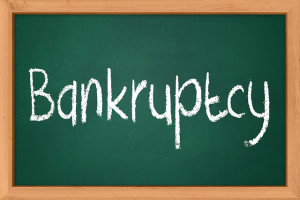Waiting just one day to file your Chapter 7 bankruptcy case can make qualifying for it much easier—or much harder!
How could a small delay make such a big difference?
One of the goals behind the change in bankruptcy law in 2005 was to force more people to pay a portion of their debts through Chapter 13 payment plans instead of writing them off in Chapter 7 “straight bankruptcy.” And the primary tool for this is the means test. The rationale behind the means test was to have a financial test that would find out who had the “means” to pay something to their creditors in Chapter 13.
But rules can have unintended consequences. An experienced lawyer will work to turn these consequences to your advantage.
Why bankruptcy means test timing is critical
The means test compares the income you received during the six FULL CALENDAR months before filing bankruptcy to the median income for your state and family size. If your income is at or under the median income, then you can file a Chapter 7 (except in unusual circumstances, which I’m not going to get into here). If your income is higher than the median, you may be able to file a Chapter 7, but you have to jump through hoops to do so. And there’s a risk that you will be forced to go through a Chapter 13 payment plan. Having income below the median income amount makes your case less risky.
But how can filing the case a day earlier or later matter so much? Because of the means test’s fixation on those six full calendar months. And because the means test includes ALL income during that period (other than Social Security). All of the money that comes into your hands during that period is counted, not just taxable income.
Imagine that you received a chunk of money, say a tax refund, a few catch-up child support payments, or an insurance settlement or reimbursement. Not a huge amount, say $3,000, received on July 15 of last year. Your only other income is from your job, where make a $42,000 salary, or $3,500 gross per month. Let’s say that the median annual income for your state and family size is $43,000 (this is just an example – the median income for New Jersey is much higher, thank goodness).
Now we’re getting close to the end of January, your Chapter 7 bankruptcy paperwork is ready to file, and you’re anxious to get it filed. BUT, if your case is filed on or before January 31, then the last six full calendar month period will be from July 1 through December 31 of last year, which includes that $3,000 you received in mid-July. Your work income of 6 times $3,500 equals $21,000, plus that $3,000 totals $24,000 received during that 6-month period. Multiply that by 2 to make that an annual amount, and that equals $48,000, higher than the $42,000 median income. So you’d have failed the income portion of the means test.
But if you just wait to file until February 1, the applicable 6-month period jumps forward by 1 month to the period from August 1 of last year through January 31 of this year. That new period does NOT include the $3,000 you received in mid-July. Now your income during the 6-month period is $21,000, multiplied by 2 is $42,000. You would be under the $43,000 median income. You’ve passed the income portion of the means test, and you can skip the awkward and risky expenses part of the means test. You’re more likely to breeze through your Chapter 7 case.
Last thing: what if that $3,000 was not received almost 6 months ago, but rather 2 or 3 months ago, and you’re desperate to file your case? You need to stop a garnishment or foreclosure and you can’t wait another few months to file. If you file now, you will be over the median income, and you will need to do the expenses part of the means test. You may be OK there. But careful pre-bankruptcy planning is critical. The sooner we start, the more likely time will be on your side.




